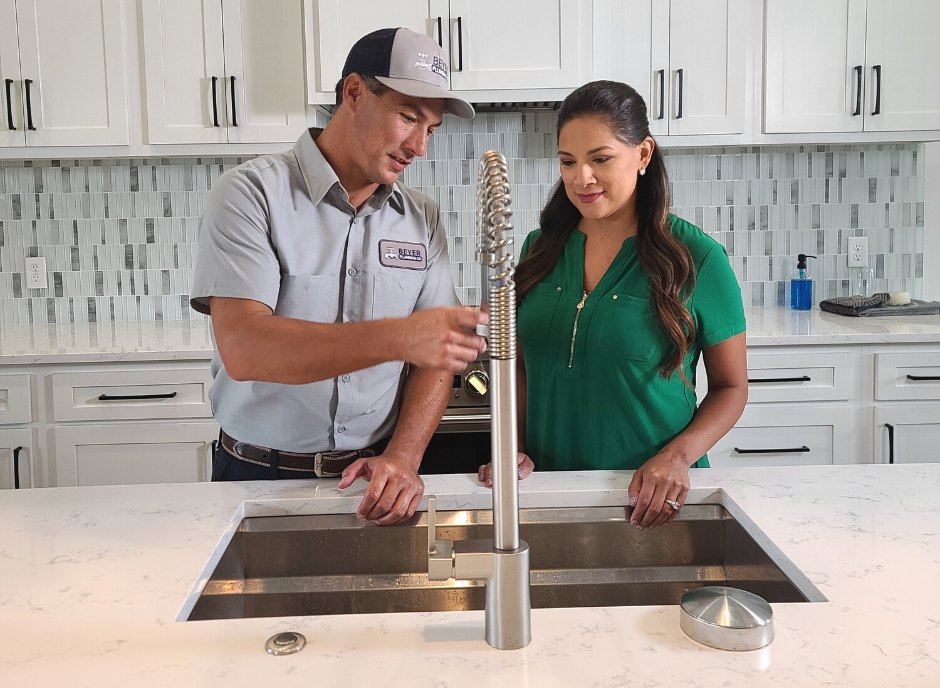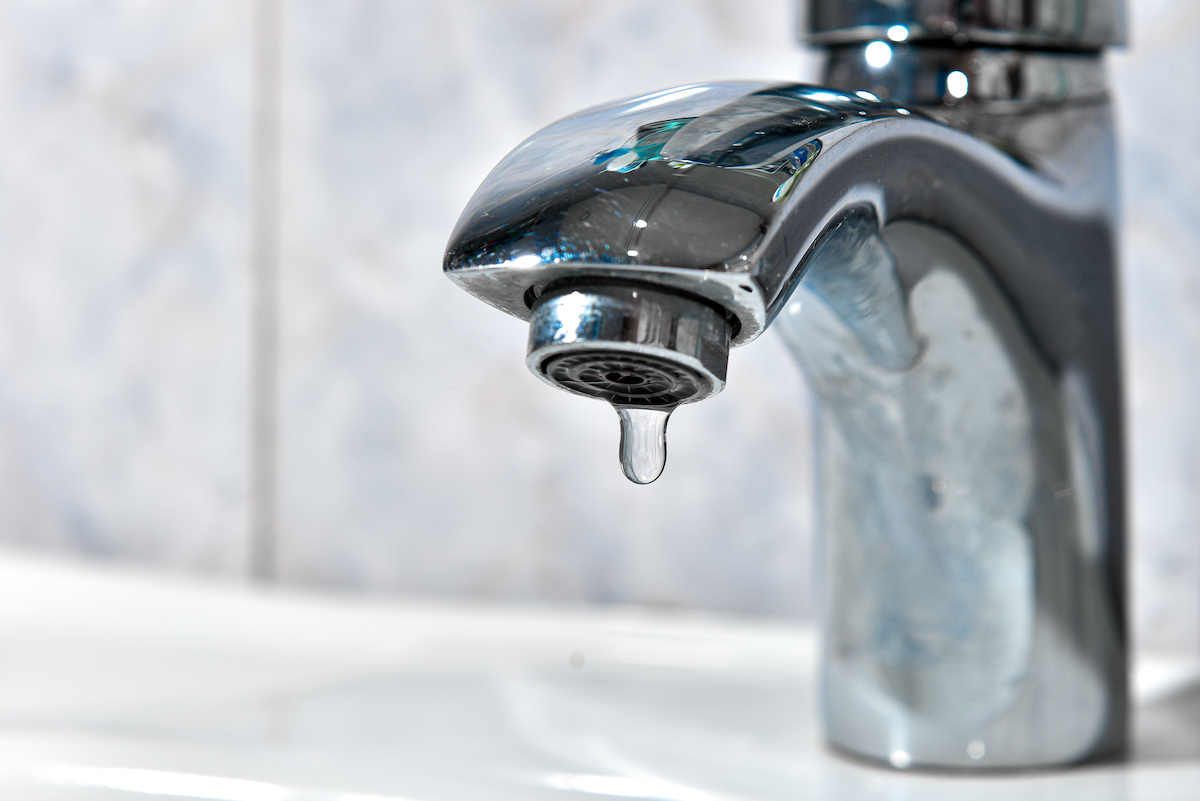Are you trying to locate additional info around How to Fix a Dripping or Leaky Faucet ?

Dripping faucets may feel like a minor aggravation, yet their impact goes beyond just the nuisance of the noise. From drainage to sustaining unneeded economic prices and wellness risks, disregarding a dripping faucet can lead to various consequences. In this article, we'll look into why it's crucial to address this common house issue quickly and effectively.
Wastage of Water
Environmental Impact
Dripping taps contribute dramatically to water waste. According to the Environmental Protection Agency (EPA), a single faucet trickling at one drip per second can waste more than 3,000 gallons of water annually. This not only stress water sources but additionally impacts ecosystems and wild animals depending on them.
Step-by-Step Guide to Repairing a Dripping Faucet
Tools Called for
Before attempting to take care of a trickling faucet, collect the necessary tools, including a flexible wrench, screwdrivers, substitute components (such as washing machines or cartridges), and plumber's tape.
Usual Tap Issues and Their Solutions
Recognize the kind of faucet and the specific concern triggering the drip. Common troubles include worn-out washers, corroded valve seats, or malfunctioning O-rings. Describe supplier guidelines or on-line tutorials for detailed advice on fixings.
Financial Prices
Boosted Water Expenses
Beyond the ecological influence, dripping taps can blow up water expenses substantially. The accumulated wastefulness gradually translates right into higher utility expenditures, which might have been avoided with prompt repairs.
Prospective Property Damages
Furthermore, long term dripping can cause damage to components and surface areas surrounding the tap. Water buildup can cause staining, deterioration, and even structural problems if left neglected, resulting in additional repair service prices.
Health and wellness Problems
Mold And Mildew and Mildew Growth
The constant existence of wetness from a leaking tap produces an excellent setting for mold and mildew and mold development. These fungi not just endanger interior air high quality but also posture health and wellness risks, specifically for individuals with respiratory system conditions or allergies.
Waterborne Diseases
Stagnant water in leaking faucets can come to be a breeding place for bacteria and various other microorganisms, increasing the danger of waterborne diseases. Impurities such as Legionella bacteria grow in stagnant water, possibly leading to significant ailments when ingested or inhaled.
Do it yourself vs. Professional Repair service
Pros and Cons of DIY Fixing
While some may attempt to take care of a trickling tap themselves, DIY repair services feature their very own collection of challenges. Without proper understanding and tools, DIY attempts can worsen the problem or result in incomplete repair work, prolonging the problem.
Advantages of Working With an Expert Plumber
Employing a professional plumber ensures that the underlying source of the leaking faucet is resolved successfully. Plumbings have the experience and devices to detect and fix faucet concerns effectively, saving time and reducing the risk of more damage.
Ecological Duty
Specific Payment to Conservation
Taking obligation for taking care of leaking faucets straightens with more comprehensive initiatives toward water preservation and ecological sustainability. Every person's actions jointly make a substantial influence on maintaining valuable resources.
Sustainable Living Practices
By prioritizing punctual fixings and adopting water-saving behaviors, people add to sustainable living methods that profit both present and future generations.
Preventive Measures
Normal Upkeep Tips
To avoid dripping faucets, execute routine upkeep such as cleansing aerators, evaluating for leaks, and changing worn-out parts without delay. Furthermore, consider mounting water-saving gadgets or upgrading to a lot more efficient components.
Importance of Prompt Fixes
Dealing with trickling faucets as quickly as they're noticed stops more water waste and possible damages, ultimately saving both water and cash in the future.
Impact on Residential Or Commercial Property Value
Understanding of Well-Maintained Residential Property
Keeping a residential property in good condition, consisting of addressing maintenance issues like dripping faucets, boosts its viewed worth and value amongst prospective purchasers or tenants.
Influence on Resale Worth
Qualities with well-maintained plumbing fixtures, consisting of faucets, command greater resale worths in the property market. Attending to leaking taps can add to a favorable perception during residential property assessments and negotiations.
Verdict
Attending to a dripping faucet exceeds mere ease; it's an important action towards preserving water, minimizing monetary costs, and safeguarding health and residential property. Whether via do it yourself repair work or professional support, acting to take care of leaking faucets is a small yet impactful way to advertise liable stewardship of sources and add to a healthier, more sustainable future.
How to Fix a Leaky Faucet: Step-by-Step Repair Guide
A leaky faucet may seem like a simple annoyance, but if it's not fixed promptly, that leak could cost hundreds to potentially thousands. From water damage to mold, mildew, and high water bills, even a tiny leak can be catastrophic if left unattended. Damage like this can even affect the overall value of your home, so it's important to take the right approach for leaky faucet repair. You may need the help of a plumber in some cases, but we've got a few tips you can try on how to fix a leaky faucet before calling the pros.
Four Faucet Types
When you're learning how to fix a leaky faucet, the first step is knowing what kind of faucet you're working with! There are four common types.
Cartridge Faucets
Cartridge faucets come in one- or two-handled varieties. In one-handled cartridge faucets, hot and cold water combines in a single cartridge. In the two-handled versions, hot and cold water are controlled separately and mixed in the faucet.
Ball Faucets
Ball faucets have a single lever you push up and down to adjust the pressure and rotate to change the temperature. A slotted metal ball controls the amount of water allowed into the spout.
Compression Washer Faucets
They're the oldest type of faucet, but they're still used in many homes — especially older ones. Compression faucets have two separate handles that, when turned, raise or lower the washer that seals a water valve. This valve stops water from flowing through the faucet when it is turned off.
Disc Faucets
Disc faucets rarely need to be repaired due to their maintenance-free design. The water flow is controlled by two discs — the upper one raises and lowers against a fixed lower disc, creating a watertight seal. If your disc faucet starts leaking, you may need to replace the seals or clean residue buildup from the inlets.
Fixing a Leaky Faucet
Step 1: Turn Off the Water
Whether you're learning how to fix a leaky bathtub faucet or how to fix a leaky kitchen faucet, always turn off the water supply to your working area when you're fixing a leak. The last thing you want is a flood added to your list of things to fix.
Look for the shutoff valves below your sink or around the tub and turn them clockwise to stop the water flow. If your faucet doesn't have shutoff valves, you may need to turn off the water for the whole house. Check to make sure it's off by turning the faucet on. If nothing comes out, you're ready to start the repair.
Step 2: Take Apart the Faucet
How you disassemble your faucet depends on the type of fixture you have. You can use a flathead screwdriver to remove the caps on top of the handle or handles for cartridge and compression faucets. Inside, you should see handle screws. Unscrew these with a screwdriver to remove the handle.
Disc- and ball-style faucets will typically have an inlet screw near the handle, and removing that will reveal the interior of the faucet.
Detach the Valve Stem
For cartridge- and compression-style faucets, you'll see the inner valve stem or cartridge once you remove the faucet handles. If you have a compression faucet, unscrew the brass valve stem. If you have a cartridge faucet, pull out the cartridge. If your cartridge has been in place for a while, it may require some tools or extra force to remove it due to mineral deposits.
Examine and Replace Parts
Once you've removed the parts, check them out to confirm what needs to be replaced. You may see corroded rubber washers, O-rings, stems, or cartridges. On a ball-style faucet, check the seats and springs for damage.
If you need to repair a leaky disc faucet, check the inlet and seals on the lower disc.
Once you determine what parts must be replaced, visit your local hardware store. Bring the damaged parts with you to ensure you can purchase the correct components to replace them.
Clean Valves and Faucet Cavity
If you've removed a stem or cartridge, you may notice mineral buildup in the faucet's threads. Use white vinegar to clean the valve seat by soaking it for a few minutes, then scrub it away with a soft toothbrush and rinse with warm water. You can also clean the interior of the faucet in the same way.
Reassemble the Faucet
Once your faucet is cleaned and the required parts have been replaced, it's time to reassemble it. Put the pieces back together and slowly turn the water supply back on. Doing this slowly is crucial because too much initial water pressure can damage the new hardware you've just installed.
https://homewarranty.firstam.com/blog/how-to-fix-leaky-faucet

As a devoted reader on Why It's Important to Fix Leaky Faucets, I figured sharing that piece of writing was worthwhile. Are you aware of another individual who is fascinated about the subject? Take a moment to share it. Many thanks for your time. Please come visit our blog back soon.
Comments on “The Value of Correcting a Leaking Faucet”